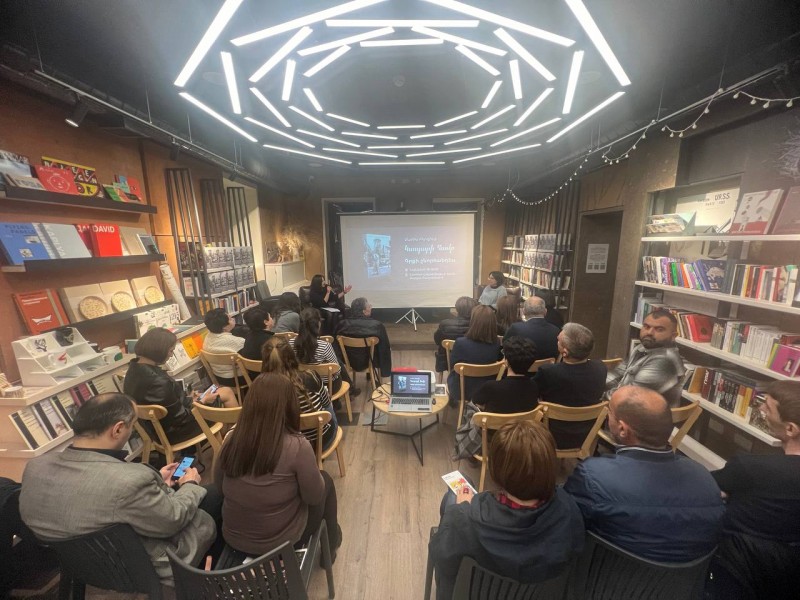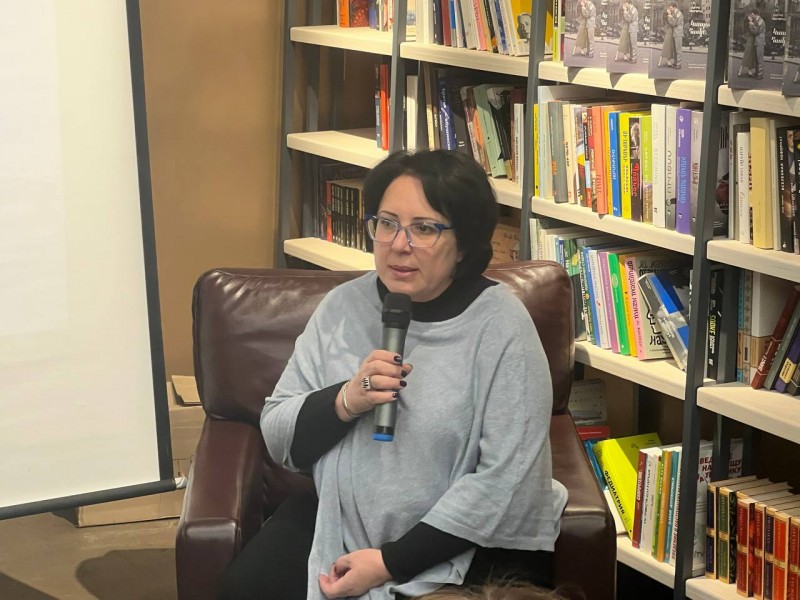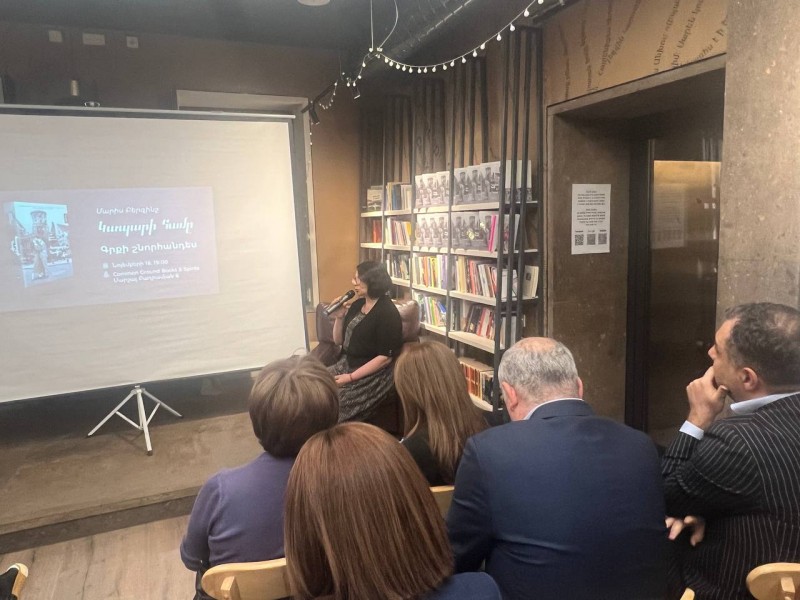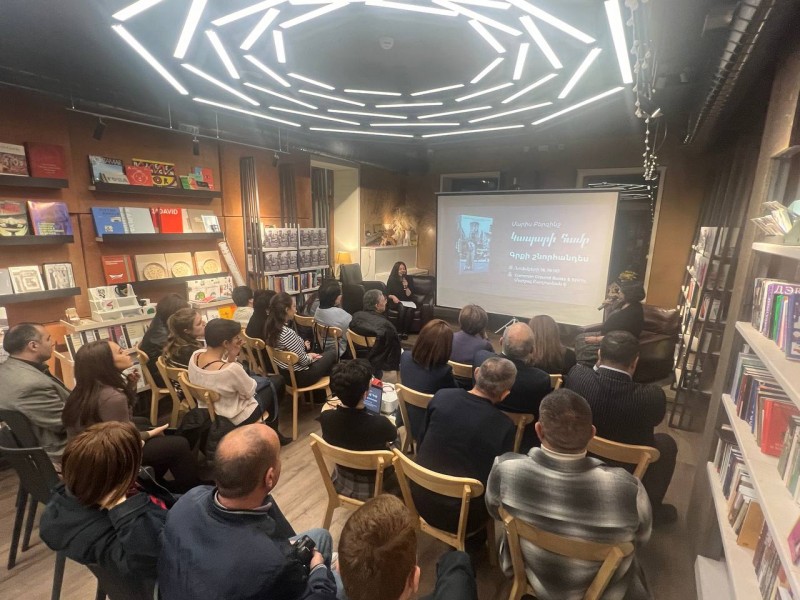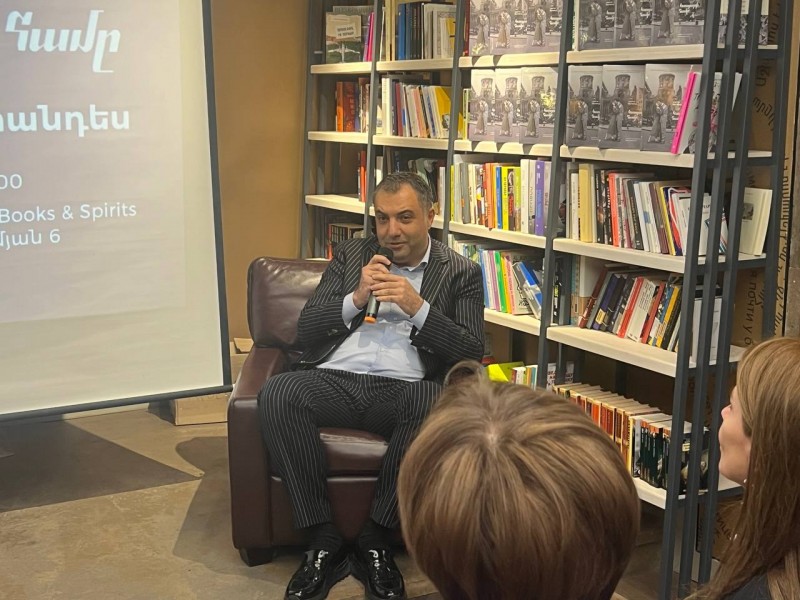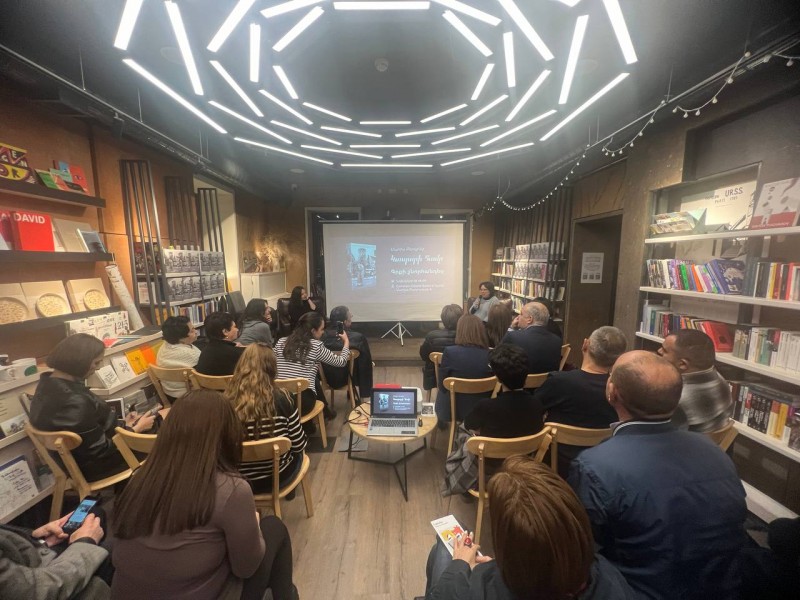On Latvia's Independence Day, November 18, Newmag presented the novel by the country's most famous writer, “The Taste of Lead” (photos).
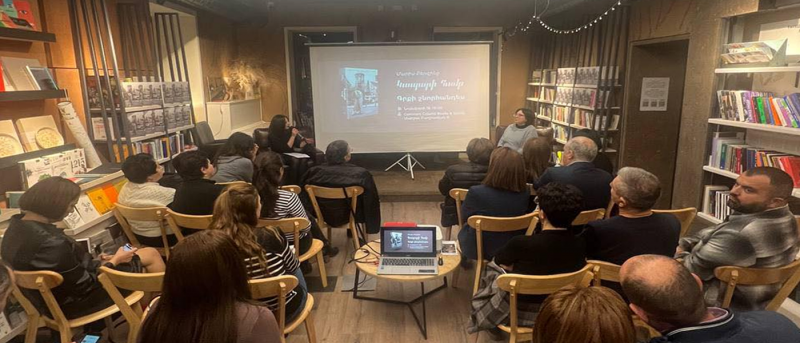
On November 18, the day of the declaration of the first republic of Latvia, the presentation of Maris Berzins's novel “The Taste of Lead” took place at the Common Ground bookstore cafe. This writer is considered one of the most renowned authors in Latvian
As part of the series “We, Latvia and the 20th Century”, “The Taste of Lead" was published along with 12 other books. According to critics, it became the most popular novel. It was translated into Armenian by Naira Khachatryan. “After being commissioned to write fiction books about various important periods of the 20th century in Latvia, Maris Berzins wrote “The Taste of Lead”. The novel was published within the "We, Latvia and the 20th Century” series. Latvian writers documented events that occurred in different periods of the 20th century. According to the critics, Berzins' “The Taste of Lead” is the most successful of the 13 published novels”.
The events described in the book take place during a very fateful period for Latvia, 1939-1941. Latvia had lost its independence at that time, but in the book, November 18 holds key significance. The author portrays the indifference of society as people continue their daily lives. The main character, the painter Matis, is neither a marked patriot nor inclined to take heroic steps. Moreover, he believes that after the departure of his German stepfather, he can live quietly and avoid involvement in political life. However, first, the communists arrive, perceiving him as partly German, and then the Nazis come, who consider him a Jew because the boy is circumcised to improve his sex life.
Naira Khachatryan, the translator of the book "The Taste of Lead" noted, “Very interesting events are starting to happen. He gets hurt, can't speak, and prove who he really is. Matis even tries to shelter Jews in his house, which was a crime at the time. There is a very subtle and interesting reference to the Armenian Genocide. The book concludes with the events in the Jewish ghetto. The heroes remember the Genocide. Latvians do not believe that it can be repeated, especially in Riga. They naively think that it is very difficult to kill so many people at the same time. However, in Riga, thousands of Latvians and Jews are shot, burned, and exiled".
According to Anna Bakhshyan, the editor of the Armenian edition of "The Taste of Lead", in addition to the fictional story, the author regularly presents facts from those years: excerpts from newspapers, archival materials, quotes from various public meetings, statements, and acquaintances. Thus, the book is not only enriched but also gains historical value.
"The main character is trying to cope with his future during the Second World War, the Holocaust, and two occupation regimes; he is moved by his complicated relationships with women and his friendships. The writer shows how turbulent historical events and political changes directly affect the destinies of ordinary people. The writer's book is also exceptional from a historical perspective. He conducted extensive studies and research, collecting archival materials about the given period so that the fictional book also has a historical basis and documentary data”.
Honorary Consul of Latvia in Armenia Armen Ghasaboghlyan emphasizes that the Armenian edition of the book is an important step for Armenian-Latvian relations. “I am glad that Maris Berzins’ novel was published on November 18. This is a very important date for Latvia. Even today, the day of the declaration of the first republic is celebrated with great importance in Latvia. Celebrations take place on this day, and there are commemorative ceremonies on the previous days. The consulate in Armenia also celebrates this holiday. This year, however, we decided not to hold traditional holiday events but to celebrate with about 300 children who were forcibly displaced from Artsakh”.
At the end of the presentation, a Latvian-style reception took place with Riga's famous Balsam and desserts.
Read also


Winterfest to feature David Georgyan’s sci-fi action novel Impedance (trailer)

At Winterfest 2026, Newmag will present Marianna Hakobyan’s “Don’t Change the Names” (trailer)

Closing and Award Ceremony of the “Sprout in Armenian – 2025” Competition at Newmag Winterfest


